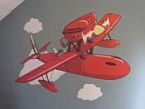ckammp
Posts: 756
Joined: 5/30/2009
From: Rear Area training facility
Status: offline

|
quote:
ORIGINAL: mariandavid
Trying to avoid turning this into a 'who is best' dialogue but I must challenge some of Offworlders highly questionable assumptions:
""The British land forces never really performed that well in the war, especially when facing a first class army""
Considered opinion (ie not my own) is that in 1940 the British and German infantry were comparable, British artillery was superior and British armour despicable. It is also true to say that the US Army itself never faced a 'first-class enemy' - as evidenced by the fact that it only engaged one full-strength panzer division in the whole war (the 2nd Panzer in Normandy). This is not a criticism simply a reminder that comparisons are tricky.
""Infantry/artillery co-ordination was basic""
In fact it was the best of any nation and its systems were copied by the United States Army after Korea. The key here was that its forward observers (regardless of rank) could order not merely request a fire mission. This avoided the debate and time wasting found in the US fire control centre system.
"while armour/infantry was nonexistant"
True if oversimplified. The lack of co-operation was between tanks and motorised infantry in the attack and this problem was not solved until after Normandy. That between tanks and marching infantry was exemplary from the start - as an example note the attack by the combined 1st Tank Brigade and the 50th Infantry Division at Arras in 1940 - the one that gave the SS and Rommel a severe fright! Note that the US Army had precisely the same co-ordination problem at Kasserine Pass as late as 1943.
""rather poor officers that they had""
This is a truly objectionable and unsubstantiated statement - and I know no evidence and no source that can credibly suggest that there was any serious distinction between the officer corps of America and Britain. In truth the weakest officer part of any army was the '90 day wonder' system introduced by the USA later in the war to make up for errors in forecasting officer losses. There are several quotations of Canadian troops expressing sorrow and pity for neighbouring American units ordered into battle knowing that their officers had no comprehension of how to lead
The trouble in this sort of comparisom is that if fails to compare situations. Some (I for one) would agree with the perception that the USA case can be summed up by saying that it produced ""the best soldiers, but the worst army"" among the allies. By this I mean that its magnificent qualities were mucked up by organisational dictats: such as its small size (contrary to Offworlders statement it was tiny in terms of number of divisions versus national population - the smallest in the war); its truly abominable replacement system;some very serious weapon weaknesses, again created by men safely housed in Washington who prized quantity over everything.
Now I feel better!!!
Glad you feel better!!!
And thank you for answering a question that's been bothering me:
How did the US Army - the worst led, worst trained, worst organized of any army in WWII - so bad the Canadians openly pitied them - how did this terrible army do so well in the war?
Now I know: They never fought a 'first -class enemy'!
Fortunatly for the Allies, the British (who had the best led, best trained, best organized army in history), with help from the Compassionate Canadians, were able to defeat all of the Axis 'first-class' units with ease. Of course, British excellence wasn't limited to their Army; RAF planes , pilots, and tactics were the world's best. The RN, lead by such heroes as Victor Crutchly (surely,the reincarnation of Horatio Nelson!), absolutely dominated the sea. Their sub captains were, are, and forever shall be the unequaled best!
All of the above is well documented fact.
Just ask any British fanboy.
|
 Printable Version
Printable Version

















 New Messages
New Messages No New Messages
No New Messages Hot Topic w/ New Messages
Hot Topic w/ New Messages Hot Topic w/o New Messages
Hot Topic w/o New Messages Locked w/ New Messages
Locked w/ New Messages Locked w/o New Messages
Locked w/o New Messages Post New Thread
Post New Thread